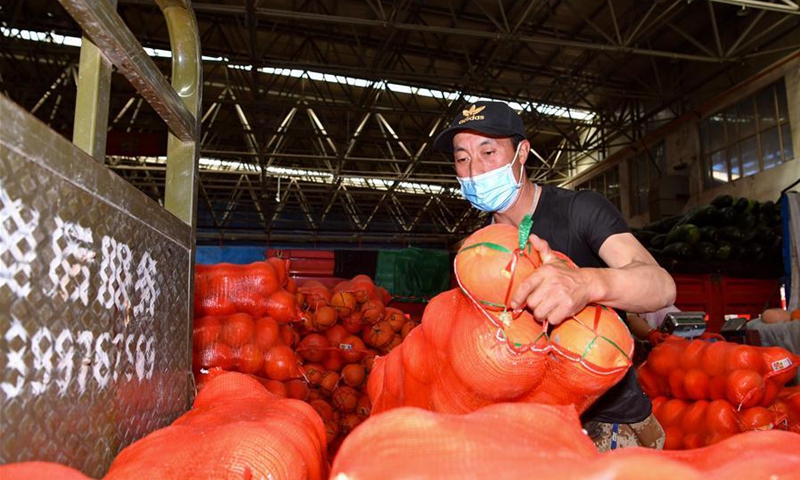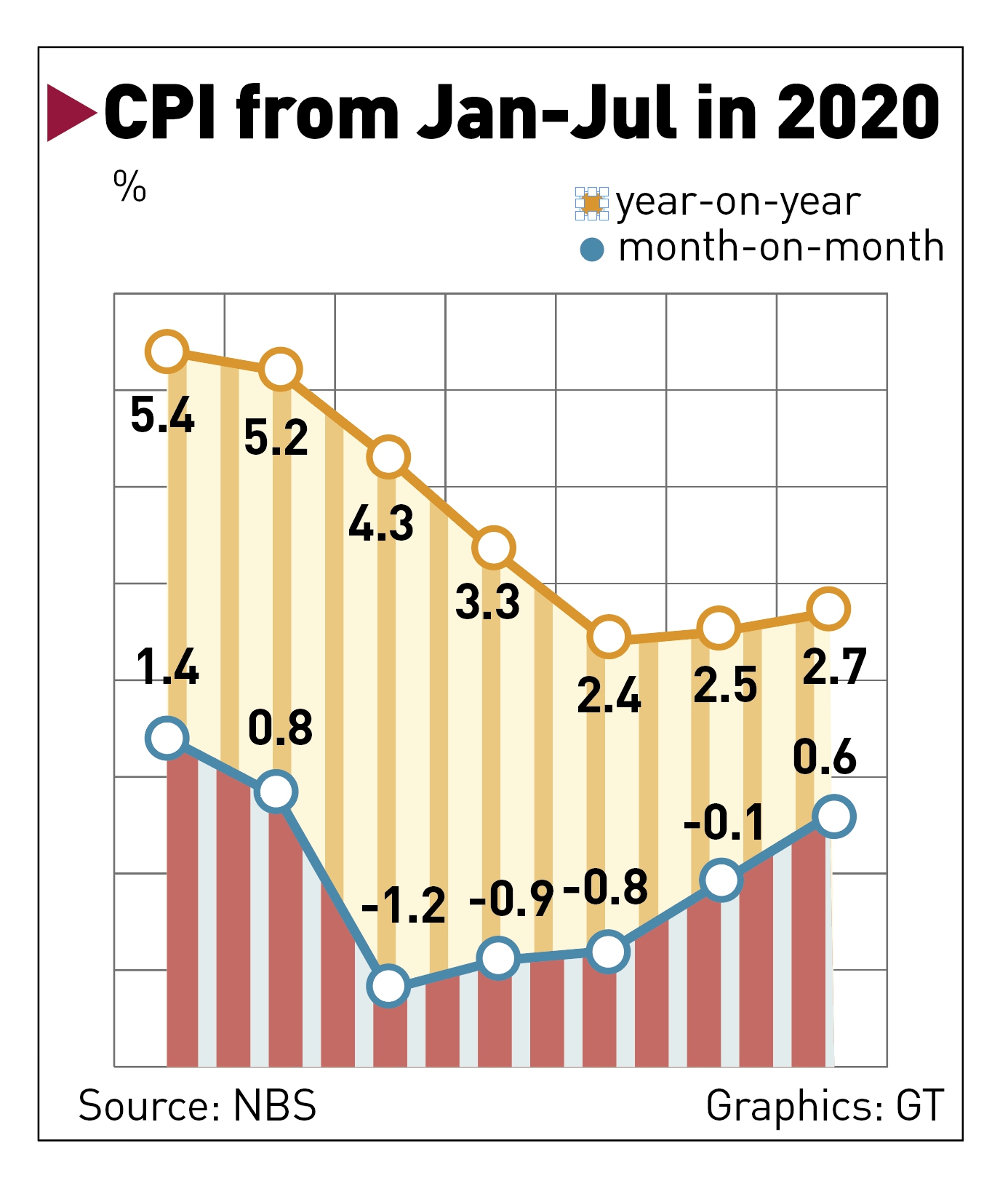China's CPI rose 2.7% in July; mainly due to food price hike
Source: Global Times Published: 2020/8/10 11:18:40

A staff member carries a sack of pumpkins at the vegetable trading center of the Xinjiang Jiuding farm produce wholesale market in Urumqi, northwest China's Xinjiang Uygur Autonomous Region, July 29, 2020. (Xinhua/Song Yanhua)
China's consumer price index (CPI), the main gauge of inflation, rose 2.7 percent in July compared with a June reading of 2.5 percent, according to data released by the National Bureau of Statistics (NBS) Monday.Analysts said that food price increases contributed to the rise of the CPI, but that inflation will edge down in later months as seasonal factors that pushed up food prices fade.
Food prices rose 13.2 percent on a yearly basis, pushing up the CPI by 2.68 percentage points, explained Dong Lijuan, a senior statistician at the NBS, adding that market conditions were generally orderly.
In the food category, pork prices rose 85.7 percent year-on-year, an increase of 4.1 percentage points over the previous month.
Fresh vegetable prices rose 7.9 percent, while egg prices went down 16.6 percent on a yearly basis, as did fruit prices, which were down 27.7 percent.
"Flooding in the south of China in July caused short-term supply shortages and price rises in some areas," Liu Xuezhi, an economist at the Bank of Communications, told the Global Times Monday. "Pig shipments were affected by the floods, which is why pork prices rebounded," he explained.
The core CPI for July, which excludes food and energy prices, rose 0.5 percent year-on-year, down 0.4 percentage points from the previous month, according to Dong.
Non-food prices fell broadly, suggesting weak overall demand. Post-epidemic consumption recovery has been slow, especially in tourism, entertainment, outdoor consumption, Liu said.
The current increase in the CPI is mainly due to seasonal factors that lead to food price fluctuations. However, it is expected that the CPI hike will be a short-term phenomenon and it will decline in the future, Liu noted.
In July, China's producer price index (PPI) fell 2.4 percent year-on-year but rose 0.4 percent month-on-month, according to NBS data.
"Industrial production continued to pick up, together with market demand, and international commodity prices continued to rise," said Dong.
According to a survey of 40 major industrial sectors, prices rose in 21 sectors, went down in 15 sectors, and remained flat in four sectors, according to the NBS.
"With the support of China's proactive policies, and the fact that the coronavirus pandemic has gradually been brought under control, it is expected that the PPI will continue to pick up, and will possibly return to positive growth in the fourth quarter," said Liu.

Graphics: GT
Posted in: ECONOMY